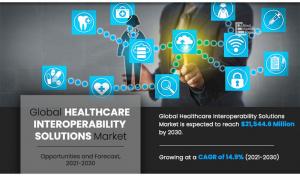SECRETARY BLINKEN: (Applause) Thank you. Thank you very much. Thank you. Please, take a seat. Good morning, everyone.
AUDIENCE: Good morning.
SECRETARY BLINKEN: Wonderful to be with you. Mr. Mayor, thank you so much for that introduction. It’s good to see you in person. I’ve seen you on TV a few times. (Laughter.)
And to all of you, it’s just wonderful to be with you. I want to thank the mayor again for his leadership of the U.S. conference. And thank you to Tom Cochran – I was just backstage with him – and the entire team for having me here with you this morning.
So in Washington, we have an old bad joke about the worst words that someone can say that you all know very well: I’m from the federal government; I’m here to help. (Laughter.) Well, this group, on the other hand, gets to say, “I’m the mayor – I really do help.” And I know the difference.
For more than nine decades, the U.S. Conference of Mayors has harnessed the incredible power of American cities to advance a stronger and more secure America.
In the earliest days of the Depression – when millions were unemployed, bread lines stretched for blocks, banks had run dry – America’s mayors forged this coalition to secure the first-ever direct assistance package to cities. If you go back and look at their campaign, the mayors were united, they were committed, and they were relentless – so relentless, in fact, that when President Hoover later threatened to veto the bill, they marched to the Oval Office and didn’t leave until he pledged his support. Please don’t remind President Biden that I shared that story with you. (Laughter.)
In the decades since, this group has come together again and again to meet America’s needs: advocating for civil rights, supporting the vulnerable, taking in refugees fleeing conflict, tackling the HIV/AIDS epidemic, and fighting violent crime in our neighborhoods.
Today, on the defining priorities of our time, America’s mayors continue to lead the way – and to deliver results for our people.
We know that cities are the engines of opportunity and ingenuity in the United States. They’re where challenges tend to emerge first, and solutions are often forged quickest. I’ve been able to see some of that firsthand in my own travels over the last couple of years.
The great vitality of cities is why President Biden asked four mayors to join his cabinet. It’s why whenever I visit our cities and meet their leaders, I tend to leave more optimistic and more confident about America’s future – our best days are genuinely ahead of us.
Now, I realize it may be a little unusual for the Secretary of State to address the Conference of Mayors. And as you heard from Mayor Suarez – and I’m told this is accurate – I have been – I will be the first Secretary of State to do so. But I wanted to be here to spend time with the leaders who are probably closest to our communities. And the reason for that is, it’s a key part of fulfilling a pledge that President Biden made at the beginning of this administration. As he put it: “Every action that we take in our conduct abroad, we [have to] take with American working families in [our] mind[s].” That’s the instruction that I got on my first day on the job.
When he took office, the President asked me to prioritize the issues that most directly affect our fellow Americans, and he asked the same of our entire national security team.
We have tried to take that charge seriously.
It’s guided our work on acute challenges, like the COVID-19 pandemic. We know – we’ve experienced this firsthand: viruses have no respect for borders. So to combat COVID-19 at home, we need to slow the spread everywhere.
That’s why we’ve supported the donation of over 680 million doses of safe, effective vaccines to over 116 countries. It’s why we partnered with dozens of countries, with the World Health Organization, with regional organizations to deliver on what we call a Global Action Plan to increase vaccinations, to strengthen health supply chains, to combat misinformation and disinformation that’s aiding the virus’s spread – accelerating the work that mayors are doing here at home.
And it’s why we’re doing everything we can to ensure that the world is better prepared to prevent, to detect, to respond to future epidemics because we know they’re coming – including by working to establish a State Department bureau on global health security and diplomacy to make sure that my agency is as organized as it can be to deal with this in the future.
Another immediate challenge is, of course, the climate crisis, which America’s mayors know – and see firsthand – there is a clear, present, and growing danger. Now, maybe you live in Florida, which last fall was hit by Hurricane Ian, one of the worst disasters in a century. Or the Midwest, where farmlands keep flooding, pushing up food prices for everyone. Or out West, where wildfires get worse every single year, and historic storms just slammed the coast.
Now, I know mayors aren’t just witnessing climate change – you are helping to lead the fight against it. When Washington pulled back from the Paris Agreement, it was America’s mayors and governors who stepped up. As the effects of climate change came to your doorsteps, you found the solutions to keep people safe, to transition to clean energy, to cut emissions, to conserve ecosystems. And you’ve worked with counterparts from around the world to share lessons and to raise one another’s ambitions.
Your leadership is vital, and it’s going to be even more so in the years ahead. And so will the role of American diplomacy – because, just as with pandemics, we simply can’t solve this problem on our own. Our country accounts for about 15 percent of global emissions, so even if we did everything right here at home, we’ve got to bring the other 85 percent along.
Now, we’ve rallied three quarters of all countries to support something called the Global Methane Pledge to cut emissions by 30 percent by 2030, emissions coming from the flaring of gas. If that succeeds, it would be the equivalent of taking every ship out of the seas and every plane out of the skies in terms of emissions. We’re working with 139 other nations to phase down hydrofluorocarbons, a greenhouse gas used in refrigerators and heat pumps and air conditioning. That step alone could avoid as much as half a degree Celsius of warming by the end of the century.
And we’re leading the Subnational Climate Action Leaders’ Exchange. This is a new initiative to help cities, states, and regions develop and implement net-zero climate resilient targets and roadmaps. These actions advance our climate goals around the world, but they also spur job creation here at home. And as you’ve often heard the President say: when I think about climate change, I think about jobs. This connection is real; we can make it even more powerful.
We’re also currently negotiating a global agreement to end plastic pollution by 2040. In the U.S., cities are going to be crucial to that effort. We know that cities like Seattle and Phoenix are on the cutting edge of the quest to reduce, to reuse, to recycle plastic. And we’re hoping to work with the Conference of Mayors to help create an agreement that mayors here and around the globe can successfully implement.
Our focus on delivering for the American people is also shaping our work on longer-term strategic challenges, like the global technology revolution that’s quite literally changing how we live and how we work. We need to make sure that critical and emerging technologies – and all of their applications, from artificial intelligence to biotechnology – actually protect our privacy, our security, our democracy, even as they usher in incredible opportunities in your communities here at home.
So we’re forging new partnerships to bring our closest economic partners and fellow democracies together to try to shape, uphold, and promote common rules of the road to do just that. A lot of these rules get shaped in windowless conference rooms around the world, sometimes in the United Nations system. That’s where it’s actually happening. That’s where decisions are made that actually affect the way that everyone gets to use this technology.
So it’s important – more than important, it’s vital – that the United States be at the table – in fact, be at the head of the table – when all of those rules are being laid out. We’ve got a new bureau at the State Department for Cyberspace and Digital Policy. We have a new office for the special envoy for critical and emerging technologies to make sure that we will be well positioned to lead on these issues, that we will be at the table, that we will be at the head of the table.
We’re also leading a concerted diplomatic push to make our supply chains more secure and more resilient. Now, just a few years ago, if you said supply chain I think people’s eyes would glaze over. It still maybe creates that effect. It’s kind of a wonky phrase. It’s used mostly by economists and trade experts. But I think now most of our fellow citizens have experienced firsthand what it means when a supply chain is disrupted. If you look at the Pfizer-BioNTech COVID-19 vaccine, for example, it is manufactured between 11 sites across five countries, with inputs coming from many, many places. If that gets disrupted, we know what happens.
So we’re mobilizing our partnerships to strengthen the supply chains that affect the availability and affordability of everything from cars to basic medical supplies. We’re forging new partnerships to diversify supply chains for critical minerals so that we can both lower the costs and reduce dangerous dependencies, especially on autocratic countries, because economic security is national security. We know that and we live that every day at the State Department.
We’re also using our diplomatic toolkit to protect American workers and try to level the playing field on which they compete, because if they’re giving – given a level playing field, they will outcompete anyone. In the administration’s first year together with partners across the U.S. Government, we rallied 130 countries to sign on to a global minimum tax for the world’s biggest corporations.
That agreement will help end the race to the bottom on corporate taxes. It’s a major step toward making sure that multinational corporations invest here in America, eliminating the incentive to shift job creation and profits abroad chasing the lowest taxes. It’ll make America more competitive and ensure that our government and all of you have the resources to invest in our roads, in our bridges, in the educational systems that give opportunity to the next generation.
We’ve also set up new partnerships like the Indo-Pacific Economic Framework and the Americas Partnership for Economic Prosperity to try to shape the economic rules of the road for the future and create more opportunities for your citizens.
Finally, we’re focused on a crisis that I think everyone in this room knows all too well: fentanyl. The fentanyl overdose epidemic is the number-one killer of Americans age 18 to 49. That is a mind-boggling fact, and it’s worth repeating – the number-one killer in this country of Americans 18 to 49: synthetic opioids, fentanyl. At the State Department, I’ve made clear that we have to bring to bear the full power of American diplomacy to this challenge. So we’re working with international partners and with the private sector to try to disrupt the synthetic drug supply chain and prevent the diversion of chemicals from legitimate purposes to the production of synthetic drugs like fentanyl and methamphetamines.
And we’re committed to working with you to create and execute solutions that can actually make a difference in your communities.
So public health, climate, supply chains, the future of technology, economic security – these are the issues that our diplomats, your diplomats are working on day-in and day-out. It’s what we mean when we talk about a foreign policy for the middle class. It’s what we mean when we say that the line between foreign and domestic policy is more blurred than it’s ever been.
And just as what we’re doing abroad has a major impact at home, what we’re doing at home matters profoundly to our success around the world. That is more true than ever at a time when we see geopolitical competition has reached its most intense point since the end of the Cold War.
Historic investments like the CHIPS and Science Act, the Inflation Reduction Act, the Bipartisan Infrastructure Law – these are actually critical to our standing and to our influence around the world. I feel this every single day. When those laws were passed, it literally added lift to our diplomacy around the world. It created American jobs, revitalizing our industries, recharging our innovation base, better positioning us to compete with rivals, demonstrating the power of democracy – when it gets it right – to deliver for its people.
It’s precisely because foreign and domestic policy are so inextricably linked and mutually reinforcing that, in our judgment, we need to try to deepen the partnership between institutions like mine and yours.
And that’s why the State Department launched a new subnational diplomacy unit. I’m thrilled to have Ambassador Nina Hachigian here. She’s serving as our envoy to all of our cities and states.
Nina comes to us from Los Angeles, where she served as the first deputy mayor for international affairs. Before that, she was our ambassador to the Association of Southeast Asian Nations, and she worked with me on the National Security Council way back in the Clinton administration. I know that she is extremely excited to be working with all of you.
Last November, Nina traveled to Richmond, Virginia, where she met with Mayor Stoney and representatives from the business community. And she heard something that we’ve been hearing in many parts of our country: more needs to be done to create good-paying jobs. Cities are eager for help attracting more foreign direct investment and creating more markets for exports.
But that’s not all. Nina and her team also heard that cities are looking to the federal government for help tackling other issues that affect their ability to expand inclusive economic opportunity and to grow businesses – like how to fix supply-chain issues, how to navigate complex global tax regimes, or how to support woman- and minority-owned businesses as they compete around the world.
We can help. These are issues that we work on every day. And with the subnational diplomacy unit, mayors now have an address at the State Department when they need help.
The subnational team will also strengthen partnerships between America’s mayors and the world. U.S. mayors are already leading in the global arena – last fall at COP27, where the Mayors Conference hosted sessions on climate migration, social justice, and financing.
So we’re here to accelerate that engagement, to support it, including by connecting you with our partners beyond our borders, like fellow mayors, as well as national governments, businesses, multilateral organizations. We know that they have a lot to learn from you.
So I’m here really to tell you that this subnational diplomacy unit, this new office at our department, is your tool. And I very much hope that you’ll use it.
Now, it’s also far from the only part of the State Department that’s focused on our cities. I’ve made clear to every part of my team that it’s on all of us to connect our states, to connect our cities with our foreign policy. And I want to encourage you to work with us in this mission.
Join us, for example, at the City Summit of the Americas in late April, which will bring mayors, governors, and community leaders together to help shape our hemisphere’s priorities to make sure that our work on democracy, on public health, on climate, on migration, on digital technologies and more actually benefit citizens at the local level. That is fundamentally what this is all about.
Join us in initiatives like the Open Government Partnership. Sign onto the Global Mayors Declaration for Democracy to defend the rule of law, to empower our citizens, to help fight corruption.
Keep welcoming people from around the world to travel, to study, to work, to live in your cities, which is foundational to our own economic growth, to our competitiveness, and to middle class prosperity.
And help us learn. Help us learn from your successes and ensure that others do as well. The answers to so many of the challenges that our world faces can be found right here in American cities.
Cities like Boston, which figured out that tracking COVID-19 in wastewater is one of the best ways to anticipate its spread, and then set up a system to test the water, neighborhood by neighborhood, to calibrate the city’s pandemic response and stop the spread.
And cities like Carmel, Indiana, home to over 140 roundabouts, which significantly reduced traffic fatalities and also mean that cars emit fewer tons of carbon emissions every single year.
Solutions are found in cities like San Diego, which is using geospatial data to determine which communities are most in need of digital connectivity and has set up open, public Wi-Fi hotspots, free tech support, free computer and internet skills classes where they’re needed most.
Three cities, three examples of innovation that are making a difference for their residents. Three opportunities the federal government and the rest of the world need to learn from. Three reasons why our foreign policy needs cities as partners.
Together as partners, my hope is that we can get to work, and get to work for the American people. That’s our common responsibility; we’re determined to do it with you. Thank you so much for having me this morning. Thank you. (Applause.)
Official news published at https://www.state.gov/secretary-antony-j-blinken-at-the-united-states-conference-of-mayors-91st-winter-meeting/













